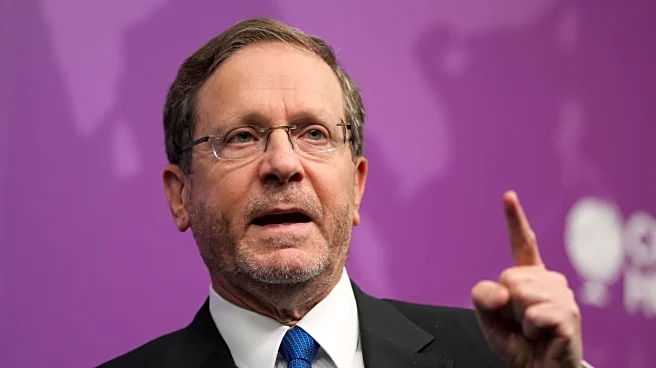What's Happening?
The Supreme Court is currently deliberating on the extent of President Trump's authority to impose tariffs without congressional approval. During a session, the justices posed challenging questions to the administration's lawyer, scrutinizing the legal
basis for the President's unilateral tariff decisions. This case has attracted significant attention as it could redefine the balance of power between the executive branch and Congress concerning trade policy. The decision is anticipated to be delivered soon, potentially affecting ongoing trade negotiations and economic strategies.
Why It's Important?
The outcome of this Supreme Court case could have profound implications for U.S. trade policy and the separation of powers within the federal government. If the court limits the President's authority, it may lead to increased congressional involvement in tariff decisions, potentially altering the dynamics of international trade agreements. This could impact various industries reliant on imports and exports, influencing market stability and economic growth. Stakeholders, including businesses and trade partners, are closely monitoring the situation, as it may affect their operational strategies and international relations.
What's Next?
A decision from the Supreme Court is expected soon, which will clarify the legal boundaries of presidential power in trade matters. Depending on the ruling, Congress may seek to assert more control over tariff policies, leading to legislative changes. Businesses and trade organizations are likely to respond by adjusting their strategies to align with the new legal framework. International trade partners may also react, potentially renegotiating terms to accommodate any shifts in U.S. trade policy.

















